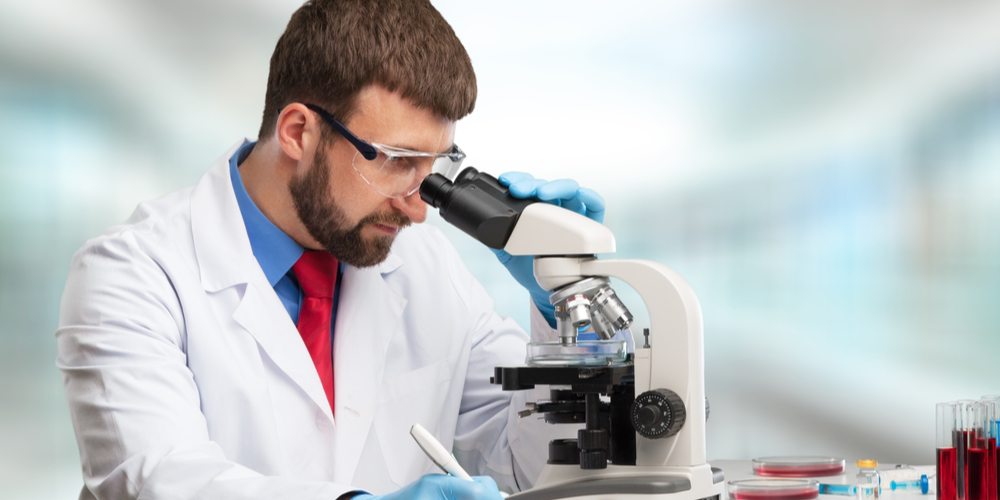Histopathologists are medical specialists who work to analyse human tissue in order diagnose diseases. The majority of work will deal with biopsy material. This is human tissue that has been taken from patients in order to assess whether there is any underlying diseases. From the tissue taken a histopathologist is able to recommend the most suitable treatment. If, for example, a lump was found to be of diseased nature, then it would be removed through surgery.

A histopathologist would likely oversee the surgery, whether in person or over intercom, in order to ensure that the fragments of diseased tissue are entirely removed. Specialists of this discipline would need to perform methods of microscopic examination in order to make an initial prognosis. This career is not only about scientific testing and analysis, but also involves a wealth of administrative and teaching duties. Routine analysis would be carried out and there is the chance to conduct research of your own, but there is little need to be on call.
Work activities
A histopathologist would typically carry out the following daily tasks:
- Attend medical meetings to discuss patients.
- This position requires little one-on-one liaisons with patients.
- Deal with biopsy material on a daily basis, involving routine tests and analysis.
- Work closely with other medical professionals such as surgeons to ensure diseased tissue is dealt with accordingly.
- Look beyond the obvious to find if there are any underlying diseases. Such things will not always jump out at you.
- Be completely accurate in your testing as your recommendations could see people having a breast or lung removed.
- Examine human tissue, both from living and deceased patients.
- You may also have to deal with animal tissues.
- Use microscopes and other investigative tools and machinery to analyse tissue.
- Perform frozen section tissue processing.
Essential skills
- An organised and professional manner.
- Able to perform systematic testing to ensure no mistakes are made.
- Work under stressful conditions.
- Make life changing decisions each and every day.
- Excellent communication and analytical skills.
- Attention to detail.
- Desire to help patients.
- This is a position requiring individuals of good problem solving ability.
- Ability to work as part of a medical team and as an individual.
- Aptitude for both medicine and the sciences.
- IT skills.
- Able to concentrate and remain composed throughout testing.

